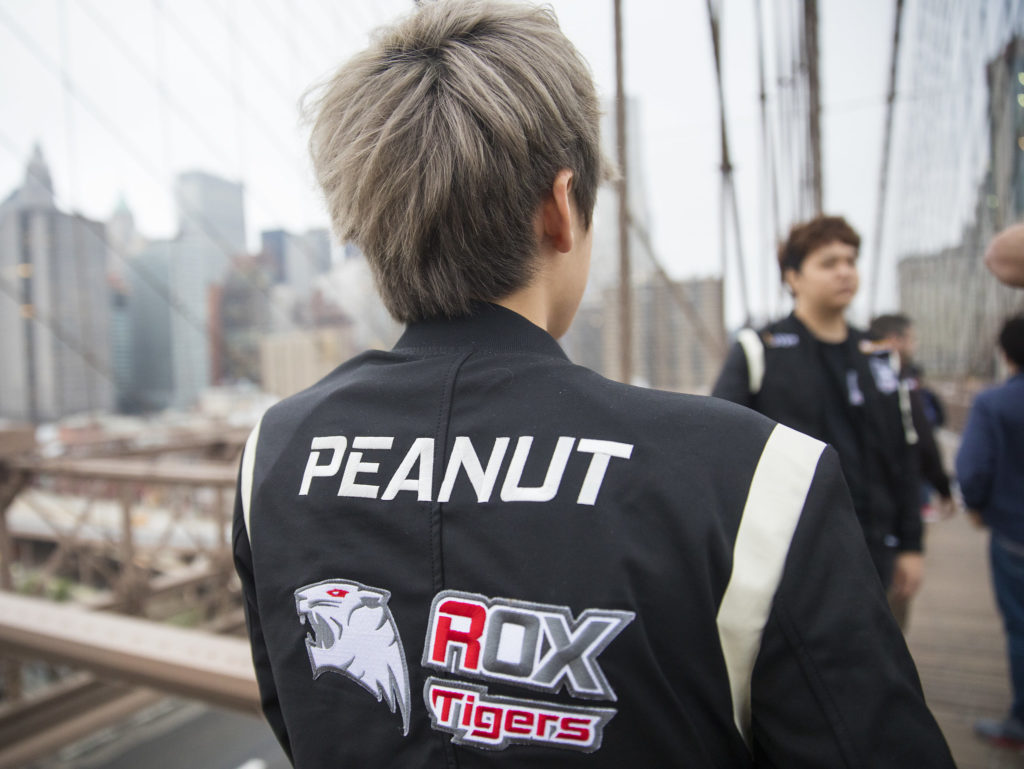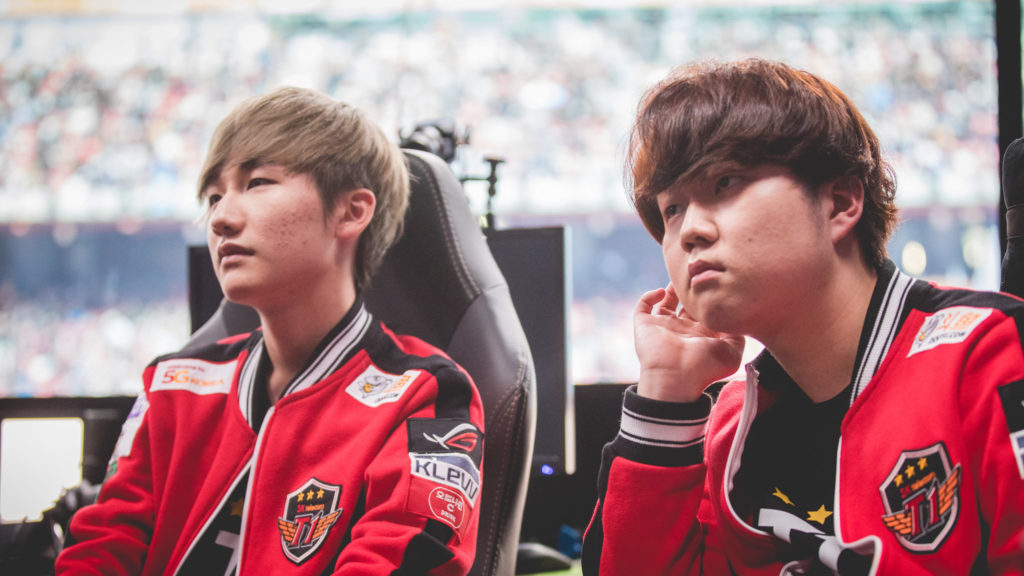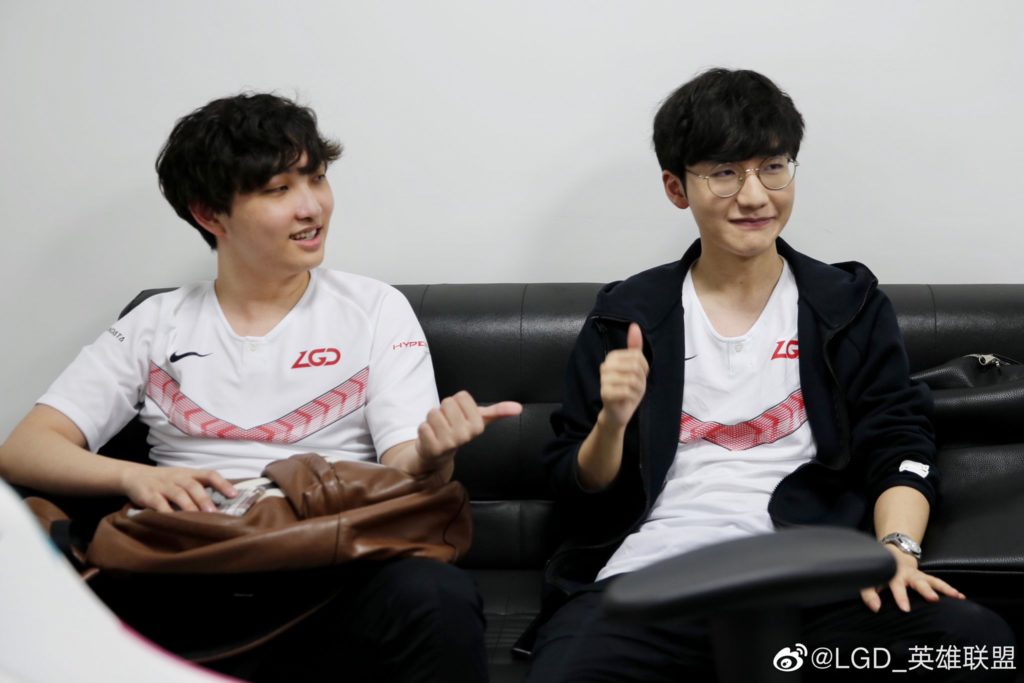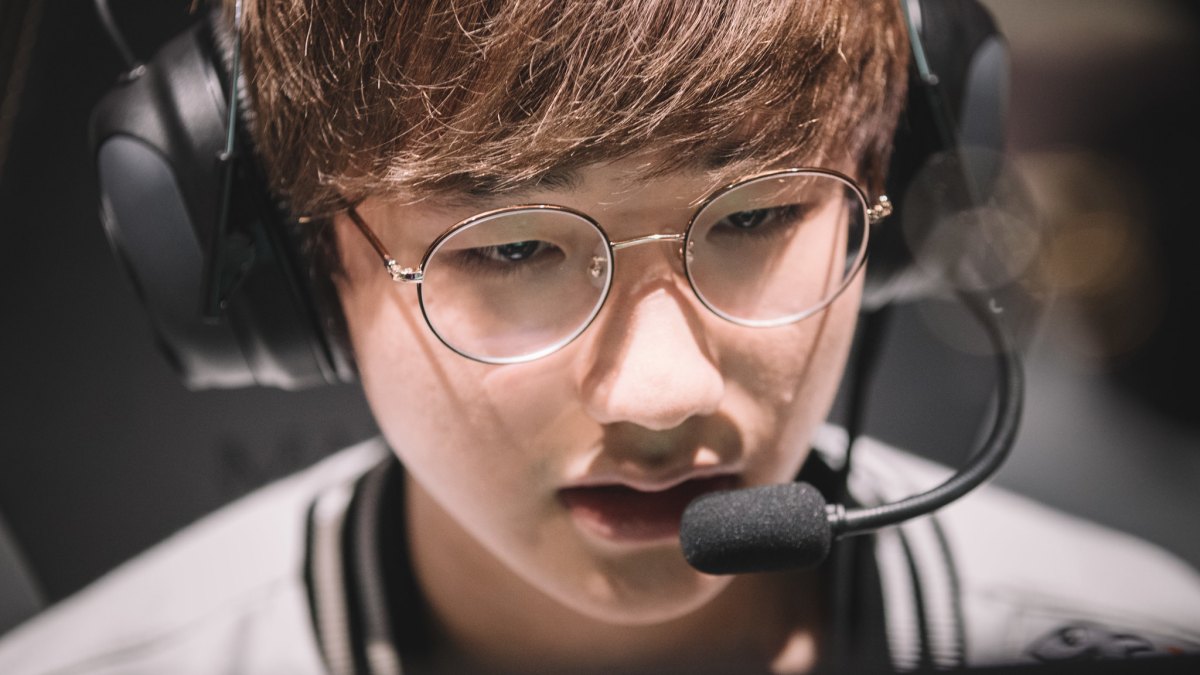The key motivator for any professional esports player is passion. In a sport where many professionals began playing at the age of 16, the driving force behind the decision to go pro is for many a powerful yet simple desire to leave a mark in the history of something they love.
Consistent passion cannot always be met with the same results, however. There are League of Legends players who explode into the professional scene only to fade into relative obscurity. There is no clearer example of this than LGD Gaming jungler Han “Peanut” Wang-ho. A two-time Worlds semifinalist, one-time World finalist, and no-time world champion, he has spent his career playing second fiddle to the best of the best, never quite achieving the ultimate goal of any pro despite getting closer to that goal than the average player could ever dream of.
Now, after two long years of international absence, Peanut’s back. Having barely made it to Worlds after defeating 2018’s world champions Invictus Gaming in the LPL gauntlet, he’s looking for a taste of the victory that has for so long eluded him.
Not-so-humble beginnings

Peanut’s career began, as seems to be the trend for Korean junglers, with his infamy in Korean solo queue. As far back as players like SK Telecom behemoth Bae “Bengi” Seong-woong and as recently as DRX’s hot-headed Hong “Pyosik” Chang-hyeon, Korean organizations have looked to solo queue to scout godly, hard-carry jungle players and mold them into all-rounded players appropriate for the professional stage.
Scouted by Najin e-mFire in 2015 at the age of 16, he quickly became one of the LCK’s most explosive junglers on picks like Lee Sin and Nidalee. One of the most defining moments of his professional career was his game against the now-disbanded SBENU Sonicboom, in which he prevented Sung “Flawless” Yeon-jun’s Gragas from taking a single blue or red buff for the entirety of the game. He became famous for his hyper-aggressive style and genius jungle pathing, gaining advantages by denying the enemy jungler from entering the game.
Peanut’s breakthrough came in 2016 on ROX Tigers, who exploded into the LCK as KOO Tigers in 2015 Spring but quickly fell from grace after a disappointing MSI semifinals loss to the LPL’s Team WE. After losing in the finals of the 2015 World Championships, the organization picked up Peanut and changed their name to ROX Tigers at the start of the 2016 season. What followed was one of the most dominant years in LCK history, in which the team lost only five total matches across the regular seasons of both spring and summer, heading to Worlds as the first seed for the most dominant region in the world.
Worlds was where it all fell apart for the ROX Tigers. Despite a dominant showing throughout the group stage, they were unable to perform when it truly mattered, losing to SK Telecom in arguably the closest World semifinals the esport had ever seen. Having given SKT their third World Championship final, the roster disbanded for the 2017 season.
A team full of carries

Shortly after their third World title, SKT’s jungler Bengi and top laner Lee “Duke” Ho-seong left the team to join former teammate Lee “Easyhoon” Ji-hoon in the LPL on Vici Gaming. This left SKT with two core spots to fill—and who better to fill one of them than the jungler who had taken them to five games in the previous Worlds final?
SKT Peanut became one of the most exciting signings of the 2017 season. When paired with the signing of prodigy top laner Heo “Huni” Seung-hoon, SKT were now a team with a carry player in every role. They looked unbeatable, winning both the Spring Split and the subsequent Mid-Season Invitational in an extremely dominant fashion. Despite some hiccups in the Summer Split that saw them lose in finals to Longzhu Gaming, they entered the World Championship as tournament favorites.
But even the best-laid plans sometimes do not come to fruition. In one of the most historic moments of competitive League of Legends, SKT Telecom T1 lost 0-3 in World Championship finals, a moment that would go on to mark the end of the single most important dynasty in the esport’s history. The images from that finals loss have become universally recognized across the world as the moment something died for the LCK: Faker hunched over his keyboard, sobbing his heart out for the victory that could have been. SKT’s “team full of carries” project had failed, and Peanut was left out to dry, unable to win either against or as part of one of the greatest teams in the world.
If at first, you don’t succeed

After bouncing around the LCK for a few years, with varying levels of success yet failing to make Worlds again, an unsuccessful split on Gen.G saw Peanut take the plunge and leave the region he had called home for five years of his career.
At first, it looked as though his move to the LPL had been a hideous mistake. He joined LGD only to finish the Spring Split in 15th place, winning only five out of his team’s 16 total matches. Many wondered whether Peanut was past his best, and if his years of “not quite making it” would culminate in an undignified retirement.
A breakthrough came for LGD in the Summer Split where, despite finishing fourth in the regular season, they decimated previous world champions Invictus Gaming for the LPL’s final spot at the World Championship. Despite having to play through the play-in stage, this is yet another opportunity for the two-time Worlds finalist to perform on the international stage. Making a run to playoffs from the play-in stage is not unheard of—the LCK’s Damwon Gaming completed the feat in 2019 before being eliminated in quarterfinals by subsequent finalists G2 Esports. Whether LGD will complete the same miracle run or even make it further remains to be seen.
With the current meta focusing on carry junglers, Peanut is in his element, able to play the Nidalee and Graves that began his career in such an explosive style. Although not the same solo queue god that stepped onto the LCK stage all those years ago, Peanut still stands as a force to be reckoned with, sitting in the top five for first-blood percentage and gold difference at 10 minutes across the entirety of the LPL’s junglers. At 22 years old, he is a youthful veteran who still plays like the 16-year-old prodigy he once was. Peanut is now looking to mark his name on a World Championship trophy that has long eluded him.
With the LPL’s current strength at an all-time high, even their fourth-place team is looking like a real and credible threat. If LGD make it out of the play-in stage (which is, quite frankly, a certainty), they will face off against Group B of the group stage, which includes Fnatic, TSM, and Peanut’s old team, Gen.G. Not only will he have to overcome his international demons for a victory at this year’s Worlds, he will have to do it by beating his replacement. Also a former T1 star, Kim “Clid” Tae-min came onto the Gen.G lineup at the start of 2020 and showed a drastic improvement from the team’s mediocre 2019 performance with Peanut on board.
Although the current meta is perfect for Peanut, and he has a willing and competent roaming mid laner in Su “xiye” Han-Wei, he will still have a hell of a battle on his hands. The jungle pool at this tournament is one of the most competitive ever and not just from the LCK and LPL. The rise of Western stars like Oskar “Selfmade” Boderek and Zhiqiang “Shad0w” Zhao have only further diversified the global jungle talent in competitive League of Legends.
Although he may be one of the oldest junglers at the tournament at what is a relatively middle-aged 22, Peanut may have more to prove than any other Worlds contender and he’s going to need all the solo queue carry strength he can get to show the world he’s more than just a second-place finisher.


